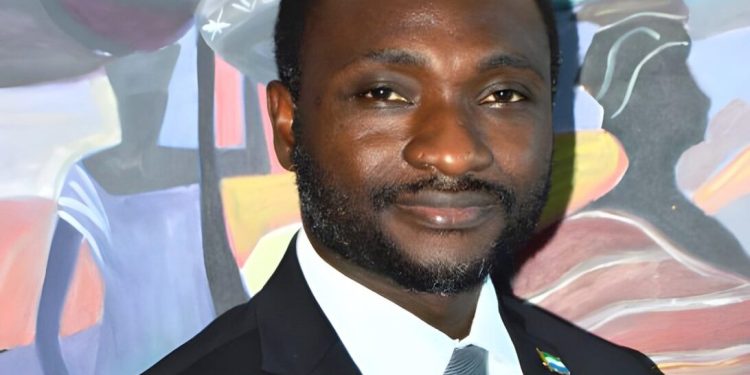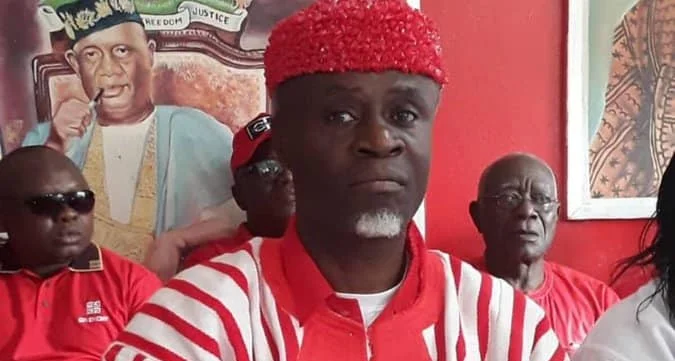The Government of Sierra Leone has an ambitious plan to make the country food self-sufficient. But for Feed Salone to work there is an urgent need for the president to fix the hunger factor.
For a nation that was once an exporter of agricultural produce including the staple food, rice, the present state of affairs where the country spends over Three Hundred Million United States Dollars – $300 million annually on food imports, considering huge budgetary support from development partners, needs some serious looking into.
Today, four out of five homes across the country goes to bed hungry. Hunger has become widespread with many people dying from preventable and treatable diseases stemming from their lack of access to nutritious food. It is not uncommon in Freetown to see young and older citizens picking food from the ground and eating them. If this is the case in the capital city where people boast of unparalleled access to goods and services then what is the realities in the provinces where people are said to suffer and die in silence?
In Sierra Leone, as with the rest of the developing world, the main reason for political discontent with our governance narrative has its origins in hunger: poor, lack of access to and not being able to afford the high cost of foodstuff.
If ‘Feed Salone is to work, it must first find solutions to solving people’s access to food and nutrition which has untold impacts on health and education outcomes for the poor.
According to the government of Sierra Leone, Feed Salone is an initiative to boost agricultural productivity to ensure food security and inclusive economic growth. The president’s top priority in his second term is for Sierra Leone to be food self-sufficient. The government will boost agricultural productivity by increasing investment, which will fuel inclusive economic growth, boost food production, reduce hunger and poverty, create jobs, boost export earnings and build our resilience in the face of climate change.
Any country that is unable to feed its people and is wholly reliant on food imports and economic aid remains exposed to fluctuations inspired by rising political tensions bordering on massive public protests or military incursions. Therefore, when a donor or budgetary supporter sneezes, societies on the receiving end like Sierra Leone catches a full blown cold.
The Feed Salone programme of the government would require close to $2 billion in private and public investments. The plan is not a quick fix as it would require time for it to be cascaded and properly implemented for it to work.
Meanwhile there are immediate and dire needs of the people that have to do with their day to day reality regarding accessing enough foodstuffs for them and their families.
Therefore while Feed Salone is being promoted with promise of financial support from local and international investors, the government must come out with stop gap measures aimed at fixing the immediate needs of its hard pressed majority.
The solutions to fixing the immediate and urgent food needs are manifold, but a great start will be for the Ministry of Trade to take an active role in our practice of the free market economic theory. Recently the spate of rising costs of commodities necessitated for the Committee on Trade in Parliament to be prodded to call the minister to give an account of why prices are set in such a way that they militate against the most vulnerable getting access to foodstuff necessary for their survival.
At present a cursory glance of the marketplaces across Freetown will reveal that there is ample rice on the market. However, the prices are not stable, not uniform or consistent. Since each importer has his or her own story of importing costs at the nation’s premier customs facility at the Queen Elizabeth II Quay at Cline Town east of Freetown that is outside the already high duty on importation, they are at will and liberty to set their own prices. This has compounded hardship on the people and makes lack of access to food due to rising prices one of the main reasons for the lack of political stability in Sierra Leone.
It has been said that a hungry man is an angry man. Not addressing hunger issues remains the main impetus for protest actions across the developing world. The high cost of fuel and foodstuff with their subsequent influence on health and transportation costs and outcomes for the poor and most vulnerable in society can be blamed for rising political tensions across the globe.
Presently in Sierra Leone there is talk of widespread discontent with public leadership resulting to massive deployment of soldiers, police officers and other state security players on the streets of Freetown especially at areas considered flashpoints to the east of Freetown. Also, the regional ECOWAS force, ECOMOG has said after the completion of its logistics depot at Lungi it will deploy a standing force of 1,200 men to aid Sierra Leone to ensure peace and security. If lack of peace has been defined as a state of war then Sierra Leone is in a state of war. But the war has to do with the people’s overwhelming need to access food, not the extant political impasse over the results of the 2023 presidential election, although this has added to the lack of peace and security across the country.
Therefore as the nation is literally tethering on the brink, an urgent and immediate solution for the obvious lack of peace and security in Sierra Leone is for the government of president Julius Maada Bio to double down from Feed Salone and focus on meeting people’s day to day survival issue relating to poor access to food due to rising food costs.
Among the manifold solutions government cannot overlook: influencing the cost by reducing import duties, issuing of waivers to key importing locals, influencing cost by directly fixing a price on strategic commodities that can influence political tension such as rice and fuel, encouraging people to grow food or keep a garden or farm. The nation should be active agriculturally hence a shift of focus to encourage people to return back to their relationship with the land.
Unless Sierra Leone addresses its longstanding agricultural inactivity, it will continue to be a victim of the circumstances resulting from geopolitical tension and shifting sands dynamics of international relations. Such tensions, such as the Russia Ukraine War and how it has affected the price of grains, have always provided the impetus for nations like Sierra Leone to direct their budgetary allocations to agriculture, education and healthcare (Human Capital Development incorporates education and healthcare).













